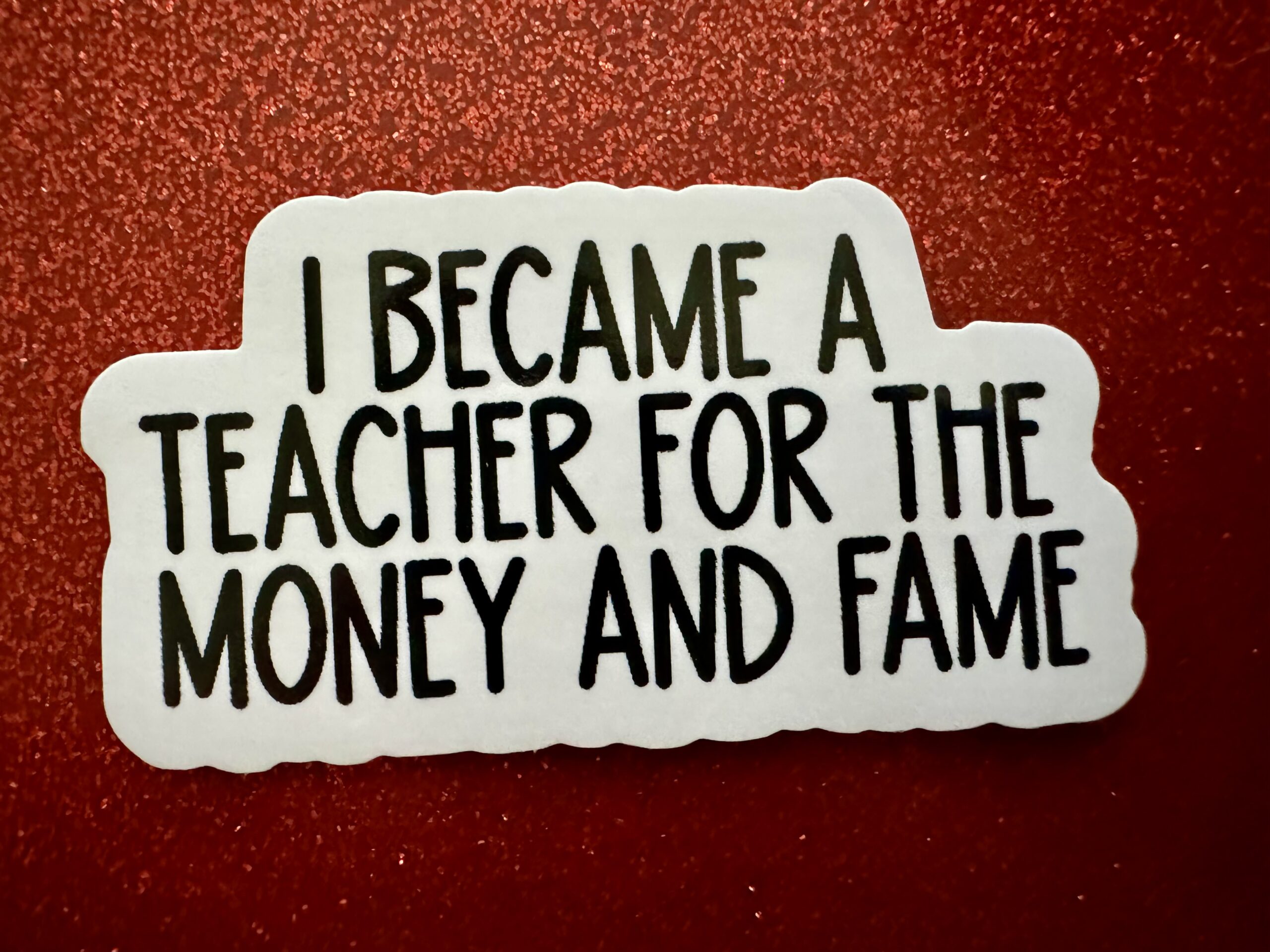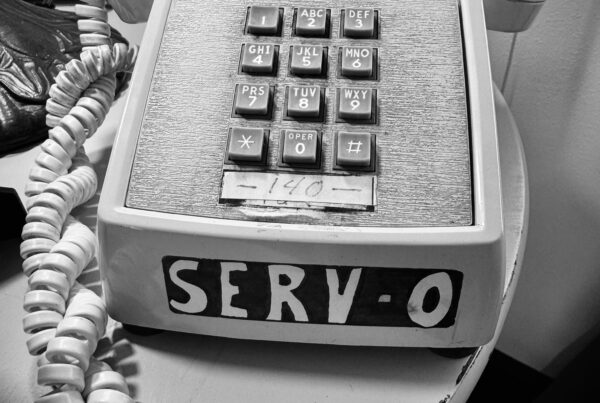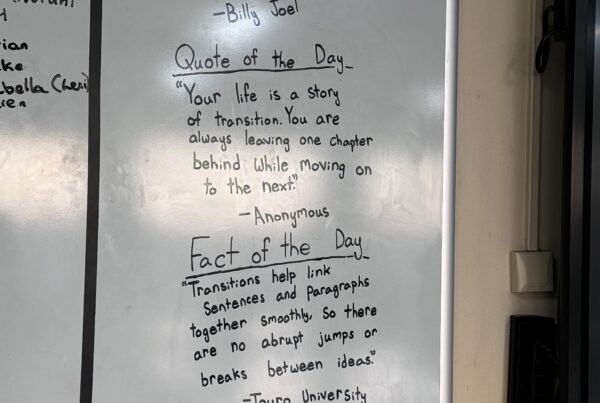
I’ve been asked to give a presentation at the Back-to-School Literacy Conference for teachers in our town in a few weeks. I attend the conference every year because I always find it motivating, and it gets me excited about the new school year. This year, I will be attending and presenting one of the break-out sessions. This is causing me a little bit of stress right now.
Every spring, a friend of mine who helps to organize the conference sends me an email and sweetly asks if I would please consider presenting at the conference. While I find it flattering that she feels that I would have something of value to say to my fellow teachers, every year that she has asked, I have declined.
Why? Well, several reasons.
- Presenting in front of peers is scary. I could teach all day long in front of my middle school students with no fears at all, but presenting in front of peers is a different story. When I get nervous, I blush and get all blotchy. It rises from my chest and up my neck and to my face. There’s just no hiding my nerves. I wear my heart on my sleeve (or my neck and face) I guess.
- Teachers are generally a tough audience. I say that with the utmost love and respect. Plus, I am one, so I think I can admit that for all of us. They talk, they interrupt, they look at their phones…all the things we ask our students not to do when we’re teaching. And they are very busy people, so it’s important not to waste their time with presentations that do not help them at all.
- My summers are my time to not stress about school stuff. Having a presentation in front of peers looming gives me something to worry about all summer. I really prefer to just show up at the conference to be inspired by others.
So, why did I say yes when my friend asked me this year? I must have been having a weak moment. I’m not exactly sure what came over me, but I think it is that, in my older age, I have gradually become less worried about others’ opinions of me, and that is very freeing. I’ve also been a docent at our local historic mansion for three summers now, so that has caused me to really get over my fear of speaking in front of adults. I’ve also had to give a few staff presentations in the past few years, and they have actually been kind of fun. Don’t tell anyone. I don’t want word to get out or they might ask me to do more of this, and I’m not sure if I really want to.
But, this year, I did say yes, so there is no turning back now. I invited my husband to present with me. He is the band teacher at the same school where I work. He has been teaching for 30 years. I have been teaching for 26 years. We decided to do our presentation on “Teaching for the Long Haul.” Because, well…we’re old, I guess. But, more importantly, we’re still enjoying teaching. Not always, but for the most part, and we’re not ready to quit just yet, so we must have some tips and insights for teachers who want to enjoy teaching for the entirety of their careers.
According to a 2022 survey by the National Education Association, 55% of educators said that they were thinking of leaving the profession. They cite issues such as burnout, student behavior, increased responsibilities, lack of support, insufficient pay, and increased stress since the pandemic as just a few reasons for their desire to leave the profession.
This rings true to me as well. Over the years I’ve watched great young teachers leave the profession after only teaching a few years. The education system needed those teachers. Recently, I’ve seen many teachers in my age group retire after successful teaching careers, but sooner than they had planned because they just couldn’t do it for another year. We’re losing valuable experience and expertise when those teachers leave.
This topic is near and dear to my heart for another reason. My daughter is starting her student teaching program this fall. She just met her supervising teacher a few weeks ago. She will be teaching at a middle school close to her college town. She will have 6th, 7th, and 8th grade students in English classes. The supervising teacher seems wonderful – knowledgeable, practical, and caring. I’m so glad. I know that the relationship between the student teacher and supervising teacher is a critical component for new teachers and helps them feel more successful and capable in their beginning attempts at running a classroom. It’s not an easy job. I want my daughter to know that there will be bad days, but that it is possible to make a career out of teaching and to really enjoy it.
So, what advice would you give to a teacher? Beginning teachers, tenured teachers, or teachers who really could retire at any time if they choose to. That is the topic of the presentation my husband and I are putting together for the conference. So, excuse me while I use my blog post this week to start to flesh out my ideas. Because I need to get prepared! I need to be ready in just a few weeks. Where is this summer going?
Ten Ways to Teach for the Long Haul
And Still Find Joy in It
- Boundaries – Work while you’re at work, and be home while you’re at home. I try not to bring work home, and I try not to bring home stuff to school. A teacher could work 80 hours a week, and still not get it all done. If you’re going to teach for the long haul, you have to find balance. Some things won’t get done, and that’s ok. A wise professor once gave me some great advice. She said, “You only have to be ready for tomorrow.” That helped me when I started to get overwhelmed thinking that I had to have the whole week, month, semester, etcetera planned out in advance. As long as you’re ready for tomorrow, you’re going to be ok.
- Find Your People – Teaching can get very lonely if you spend all of your time in your room buried in grading and planning. One of the best moves I’ve made in the five different schools I’ve taught in in my 26 years has been to always eat lunch in the staff room. My best teacher friend and I ate lunch together in the staff room every day for 17 years. She retired at the end of last year, so now I don’t know what I will do, but getting out of my classroom for 30 minutes each day helped me form friendships that last, and it was the escape I needed on the stressful days. And there was laughter. So much laughter.
- Find the humor. If you don’t laugh, you will definitely cry. All the time. One of my favorite funny stories that makes me laugh every time I think of it is the one where two of my young colleagues came up with a solution to the pencil problem. They were so tired of giving out hundreds of pencils to students who repeatedly showed up unprepared, that they decided they were going to solve the problem by tying pens to all the desks. No sharpening required. No one could claim to not have a writing tool. It was a great idea…for about a day. On day two, issues started to arise. The wiggly kid managed to tie himself to the chair with the string attached to the pen. He had to be cut out of his seat. Kids started to leave the pens hanging upside down from the desk. One of the teachers noticed a big ink spot on the floor near a desk. Then all the pens started exploding after hanging upside down. She ran to the other teacher’s class and said, “Abort mission! The pens are exploding!” We laughed at that one for days.
Another time a student was very upset because she said a student called her a whore. This was unlike the student she was accusing. He was a from Russia and English was his second language, and he had never been known to call people names. When questioned, the boy said with his accent, “No, I was calling her a ‘horror.’ You know, like the genre we were learning about in class.” We had to laugh at that one too! It still wasn’t nice to call her a “horror,” but it wasn’t nearly as bad as the other name.
Another time we were practicing intruder drills, and my colleagues and I were discussing how it had gone with our students. One teacher said, “I taught my students the ‘grab and stab’.”
I said, “What?”
She said, “I have scissors in a holder on my shelf. I told them those would be a good thing to “grab and stab” if they needed to protect themselves if there was an intruder. I don’t know why I found this so hilarious (it was such a serious topic), but once I started laughing, I could not stop. Then all the other teachers started laughing too. You know, the kind where you’re all crying, you’re laughing so hard, and someone keeps adding more comments to the hilarity of it. I told you, if we couldn’t laugh, we would definitely cry. And sometimes the tasks we are asked to do are so insurmountable that you have to laugh. You must.
I could go on and on and on about finding the humor. It is there, every single day. And teachers who make teaching a career are good at finding the humor in all those little moments.
- Get Your Financial Life in Order as Soon as Possible – According to the “National Study of Millionaires” by Ramsey Solutions whose CEO is Dave Ramsey, personal finance expert, “Teachers rank third behind engineers and accountants on a top-five list of careers most likely to have millionaires within their ranks.” How can it be that teachers outrank doctors and lawyers in millionaire status when according to the Bureau of Labor and Statistics, the average income of teachers in the US in 2023 was $61,000? According to the same survey mentioned above, 93% of millionaires surveyed created wealth simply by working hard, so that would explain to me why teachers would come out near the top. We are a hard-working bunch.
I haven’t always had my financial ducks in a row, but once I figured it out, teaching (and life) became more enjoyable and less stressful. Here are a few tips.
- Move over on the pay scale as soon as possible. It took me a few years of teaching before I could work on my master’s degree online. It took me two years of working and going to school which was hard, but each year, I got to move over another column on the pay scale. Now I am maxed out on the scale and the difference between the first column and the last one is huge. Do it one class at a time if you have to, but move over on that pay scale as soon as possible.
- Read Total Money Makeover by Dave Ramsey if you need a plan that works. I didn’t do that until I had completely failed financially, and I only turned things around after reading that book. Thirteen years later, I am debt free (except for the house) and my husband and I are almost finished paying cash to put my daughter through college, so she will start her future without student loans and debt free. This book changed everything for me.
- Routines – For me this has been key. You need to sleep, eat, and exercise. Plan for it. You will be too exhausted at the end of a teaching day to make good choices about this stuff. Make it automatic. Some routines that work for me.
- Cleaning Night – My husband and I both work, so we both clean too. Neither of us like to, but on Thursday nights we put on music and knock the house out. Laundry, floors, bathrooms, everything. It takes three to four hours now that we have a bigger house, but it’s worth it. We usually have a cocktail on the couch after we’re finished to reward ourselves. It feels so good to go into the weekend without having all those chores looming.
- Shopping Day – My husband and I plan out our menu for the week on Saturday mornings after breakfast and then go shopping for the week. It takes a chunk of Saturday to get that all done, but we don’t have time to figure that stuff out during the school week.
- Meal Prep Day – On Sundays I prepare our lunches and do any chopping of veggies needed for meals we are having during the week. That way we have 10 lunches (5 each) all prepped and ready and easy to grab. We only cook dinner on Sundays and Tuesdays, and we make enough leftovers for at least two more days of the week and we eat dinner out on Fridays. It seems like a lot to be so scheduled. But mornings are early and busy. In the evenings, we are exhausted. The less we have to think about food prep, the better.
- Exercise – Our only exercise during the school year is really walking our dog (every day after school) and 10 minutes of Yoga with Adriene on YouTube on weekday mornings before school. That’s all we have time for, and I don’t want to go to a gym, so that is what works for me.
- Sleep – Make a schedule and stick to it. I shoot for seven hours. That means I try to be in bed by 9:30 because our alarm goes off at 4:30. We have to be at school by 7:30, and I need time in the morning to get ready, eat breakfast, do yoga, and not feel too rushed to get out the door. That is the goal. It doesn’t always work though.
- Put More of Yourself into Your Teaching. I hate field trips. But I love the Conrad Mansion, and am a docent there in the summer, so I don’t mind taking my students on a field trip to the Mansion and the Conrad Cemetery when we start our unit on informational writing. It’s fun for me, and because of that, the students get more out of it too.
- Find the Beautiful Things and the People Who Inspire You – My friend Eliza has a doctorate in education and is a presenter at national educator conferences. Plus, she’s hilarious. Every time I go to one of her presentations, I learn so much and laugh so hard. Every time she recommends a book to share with students, I end up buying it. She’s never had a bad recommendation. One year she recommended the book Ten Beautiful Things by Molly Beth Griffin. I shared that book with my sixth graders that year, and it started a new routine. The book is about a little girl who is sad and making a long drive with her grandma to live with her grandma at her house. We don’t know why the girl is moving to live with her grandmother, but you get the sense that something very sad happened. The grandma tries to cheer up her granddaughter on the drive by making a game to notice ten beautiful things, simple things like the smell of the dirt, the sunset in the sky, and etcetera. After reading the book in my class, we started beginning each day by noticing the “beautiful things.” Each student who wants to can share something beautiful that they noticed. It only takes a minute of class, and it helps my classes get to know one another and sets the whole class off on a positive note. It’s been transformative in my classes, and I’m so thankful for Eliza for inspiring me by teaching me about that book.
- Have fun! – I’ve started a “Song of the Day” routine in my class. Each day the students walk into a song playing that has something to do with the lesson. For example, “Oops, I Did It Again,” by Britney Spears when we’re working on editing our writing, or “I Heard It Though the Grapevine” by Marvin Gaye when learning about idioms. It makes the students look forward to getting to class to figure out what the song will be and how it’s connected to the lesson. I have fun finding songs that will work too.
- Make It Special (Sometimes) – Randomly surprise the students. It helps them know you care about them. One day I brought the makings for hot chocolate to class while we were getting ready to evaluate papers as a class. This gave the room a coffee shop – like vibe, and the students really appreciated it. It wasn’t a regular routine, so they were surprised and appreciative of this small gesture, and it didn’t cost very much.
- Involve the Students – Let them help run the classroom. Assign jobs. Make it organized. It helps you and gives the students ownership in the classroom. And they have great ideas!
- This Too Shall Pass – Every year we’re given new protocols to follow, new bandwagons to jump on, and some of them are great! And some of them are simply terrible. The good news is that the terrible ones will pass as will the difficult parents, administrators, colleagues (there will be some). So, surround yourself with the good people, and try not to get too worked up about any of it. It won’t last, but you will.
Well, I came up with 11 things instead of 10. And there is more, but this is getting way too long. The session we are planning is only for about a 50-minute session, and half of it is supposed to be my husband’s perspective. I didn’t even get to the part about books to read that are inspiring or the part about making sound decisions, so it is easy for administrators to back you up! So, I’ll have to revise my ideas for this presentation quite a bit still. But thank you for reading and thank you for helping me wrap my brain around this very important topic for teachers. I know this blog post will draw some great ideas and advice from others too, so by the time my husband and I are ready to present to our peers, it will be polished with the best information possible. Because teachers are very busy and good people. And presentations should be helpful and not waste their valuable time.


